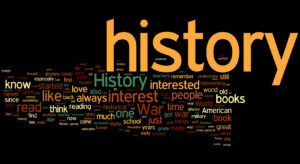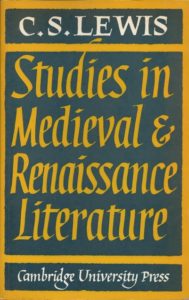 Many readers of Lewis are familiar with a comment he made in his “Learning in War-Time” essay with respect to the importance of knowing history. As a historian, it truly resonates with me, and I was reminded of it again when I assigned the essay to my students last week. Lewis wrote,
Many readers of Lewis are familiar with a comment he made in his “Learning in War-Time” essay with respect to the importance of knowing history. As a historian, it truly resonates with me, and I was reminded of it again when I assigned the essay to my students last week. Lewis wrote,
Most of all, perhaps, we need intimate knowledge of the past. Not that the past has any magic about it, but because we cannot study the future, and yet need something to set against the present, to remind us that the basic assumptions have been quite different in different periods and that much which seems certain to the uneducated is merely temporary fashion.
A man who has lived in many places is not likely to be deceived by the local errors of his native village; the scholar has lived in many times and is therefore in some degree immune from the great cataract of nonsense that pours from the press and the microphone of his own age.
In other words, we need perspective—historical perspective—to properly understand our own time and to, as he says, make us somewhat immune to the “cataract of nonsense” that emanates from our media. In Lewis’s day, that was mostly via magazines and radio; what would he say about the vast social media networks that exist now?
 I have The Quotable Lewis, a very useful volume edited by Wayne Martindale and Jerry Root, in front of me right now, and under the category of “Prejudice,” I discover that Lewis said something very similar in his Studies in Medieval and Renaissance Literature in a chapter on the poet Edmund Spenser. Here’s how he described the same concept in somewhat different language:
I have The Quotable Lewis, a very useful volume edited by Wayne Martindale and Jerry Root, in front of me right now, and under the category of “Prejudice,” I discover that Lewis said something very similar in his Studies in Medieval and Renaissance Literature in a chapter on the poet Edmund Spenser. Here’s how he described the same concept in somewhat different language:
There is a great difference between rejecting something you have known from the inside and rejecting something (as uneducated people tend to do) simply because it happens to be out of fashion in your own time.
It is like the difference between a mature and travelled man’s love for his own country and the cocksure conviction of an ignorant adolescent that his own village (which is the only one he knows) is the hub of the universe and does everything in the Only Right Way.
For our own age, with all its accepted ideas, stands to the vast extent of historical time much as one village stands to the whole world.
A key message I always want to communicate to my students is that just because we are farther along the historical timeline, that doesn’t automatically mean we are smarter. Sometimes, the things we believe and the actions we take are more foolish than the beliefs and actions of those who came before us, and that it might be wisdom on our part to study them and find out what they have to offer us.
We are an arrogant age, thinking we know so much better than our ancestors, yet we are also a historically ignorant age. We have much to learn.
